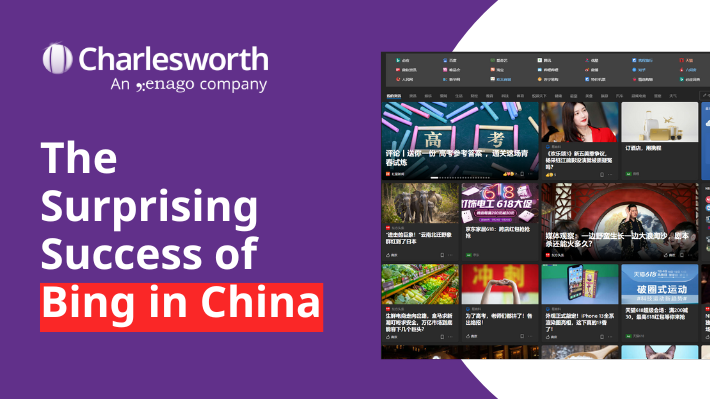The Surprising Success of Bing in China: What It Means for Your Business

In a market where Baidu has long reigned supreme, Microsoft’s Bing has emerged as an unexpected challenger, capturing the attention of both users and businesses in China. With a range of distinct features tailored to local preferences and global reach, Bing’s rise is more than just a passing trend. It signals an important shift in China’s search engine landscape, which has traditionally been dominated by local players. The platform’s growing user base, its strong focus on privacy, and its competitive advantages for businesses make it an increasingly appealing choice for advertisers and companies looking to tap into the professional and international-minded user demographic in China.
The Rise of Bing in China: A Market Snapshot
Historically, Microsoft’s Bing has operated quietly in China since its official entry in 2013, but it has increasingly caught the eye of the tech-savvy user base. According to data from the American web research agency Statcounter, between December 2024 and February 2025, Bing surpassed Baidu only on the desktop platforms in terms of market share, capturing a significant 51.43% of the search engine market in China. This marked a key milestone, with Bing edging out Baidu, which held 28.89% of the market. Though these figures raised some eyebrows—particularly given concerns about the accuracy of Statcounter’s data collection methods—Bing’s performance in the region has nonetheless generated considerable interest from both users and businesses alike.

Key Factors Behind Bing’s Success in China
While Bing’s ascension can partly be attributed to its integration with Microsoft’s other services, particularly ChatGPT and the Edge browser, there are several factors that contribute to its growing appeal in China. These factors make Bing a formidable player in the Chinese search engine market.
1. Global Reach and Search Quality
One of Bing’s standout advantages in China is its ability to deliver high-quality international search results. As the Chinese digital landscape has traditionally been shaped by local search engines like Baidu, Bing’s global scope provides users with access to a wider array of information from around the world. This feature is especially valuable to researchers, international businesses, and anyone looking for a broader perspective on issues. Unlike Baidu, which is primarily focused on local content, Bing’s ability to provide both Chinese-language and global search results positions it as an essential tool for those requiring robust international search capabilities.
For instance, professionals in fields such as technology, international business, and academic research often require access to global data that goes beyond what Baidu can offer. Bing’s comprehensive approach has allowed it to carve out a niche for itself among users who need more than just Chinese-centric information.
2. Appeal to Professional Users
Bing’s user base in China tends to be composed of business professionals, adult users with higher purchasing power, and decision-makers within B2B sectors. This demographic is attractive to advertisers seeking a high-value audience for their products and services. With users often having more refined and professional search needs, Bing provides a platform for brands that wish to target a well-defined and affluent audience, such as those involved in foreign trade, technology, and academia.
According to a 2024 survey by the China Internet Network Information Center (CNNIC), over 65% of Bing users in China are aged 25-44, with a significant portion holding managerial or professional positions. This demographic not only has higher disposable income but also makes more frequent business-related purchasing decisions. For businesses looking to expand their reach to international markets, Bing’s growing popularity among professional users presents an excellent opportunity. The platform’s appeal to decision-makers and business professionals makes it a prime choice for companies aiming to connect with a sophisticated and commercially-driven audience in China.
3. Privacy and Data Security
In today’s digital age, concerns about privacy and data security have become central to users’ online behaviour. Bing’s strong emphasis on privacy sets it apart from Baidu and other local competitors. As data protection becomes a growing concern for both individuals and businesses in China, Bing has capitalised on this trend by offering a secure platform that resonates with users and companies prioritising privacy.
For tech firms, multinational corporations, and businesses that handle sensitive information, this privacy-forward approach is a key differentiator. Bing’s reputation for safeguarding user data positions it as a viable alternative to Baidu, which has faced scrutiny over its data collection practices. By catering to privacy-conscious users, Bing stands out as a trusted platform, especially in a market where concerns about data security continue to rise.
4. Cost-Effective Advertising with Impressive Conversion Rates
Perhaps one of the most compelling reasons for businesses to consider Bing is the cost-effectiveness of its advertising platform. In 2024, Bing launched its search advertising services in China, offering a lower-cost alternative to Baidu’s more expensive options. The early performance of Bing Ads has shown impressive conversion rates, indicating that it’s a valuable channel for businesses seeking to maximise their return on investment (ROI) in the Chinese market.
Bing’s advertising platform offers a competitive advantage, particularly for companies looking to minimise advertising costs while still achieving strong results. In contrast to Baidu, which is highly saturated with advertisers, Bing presents a less competitive environment where brands can secure valuable ad placements without the same level of bidding pressure. This makes it an attractive choice for businesses that want to stand out while keeping their marketing budgets in check.
Bing vs. Baidu: Why Businesses Should Consider Both Platforms
For companies already advertising on Baidu, Bing presents an enticing supplementary option. By diversifying their advertising strategy and adding Bing to their digital mix, brands can take advantage of its unique features—such as international search results, professional user base, and lower advertising costs—while continuing to benefit from Baidu’s dominance in the local market.
The key to success in China’s digital advertising ecosystem lies in finding the right balance between local and global platforms. By integrating Bing alongside Baidu, businesses can expand their reach and engage with a more diverse audience. With fewer advertisers competing for ad space on Bing, businesses have a unique opportunity to secure prime positions and drive higher conversions at a lower cost. A balanced approach might involve using Baidu for broad local market coverage and high-volume campaigns, while leveraging Bing for targeted campaigns aimed at high-value professional users and international segments. This dual-platform strategy can help businesses achieve both brand awareness and higher conversion rates.
Target Markets for Bing in China
Bing’s strategic features make it particularly well-suited for a few key industries and sectors in China.
- Multinational Corporations
For companies with a global presence, Bing’s ability to offer international search results is a significant advantage. These companies can use Bing to promote their brand and extend their reach to a broader audience, both within China and beyond. - Technology Firms and Foreign Trade Businesses
Bing’s privacy-forward stance, combined with its superior global search capabilities, makes it an ideal platform for tech companies and foreign trade businesses that need access to international markets and secure search solutions. - Academic Researchers
In academic and scientific fields, Bing’s extensive global database positions it as a valuable tool for researchers seeking to access data and research materials from a wide range of sources.
Conclusion
While Baidu remains the dominant search engine in China, Bing’s rise over the years has been noteworthy. Its unique blend of privacy features, global search capabilities, and cost-effective advertising has positioned it as a strong contender for businesses looking to expand their digital presence in China. As Bing continues to grow, those who embrace this platform early may gain a competitive edge in connecting with professional, globally-minded users in one of the world’s most dynamic markets. Early adopters of Bing in China, such as technology firms and multinational corporations, have already reported significant improvements in ad performance and user engagement. As Bing’s user base continues to expand, businesses that invest in this platform now are likely to see even greater returns in the future.
At Charlesworth, we specialise in helping brands expand in China by offering expert digital marketing strategies and local market knowledge. By integrating platforms like Bing into your digital strategy, we can assist you in reaching your target audience effectively and cost-efficiently, unlocking new opportunities in this highly competitive market.


